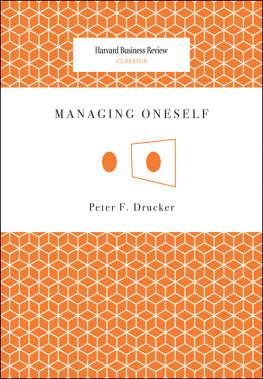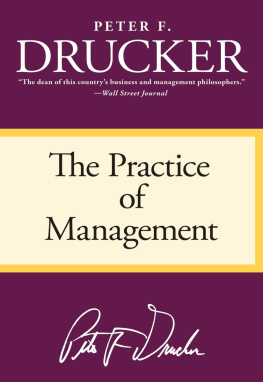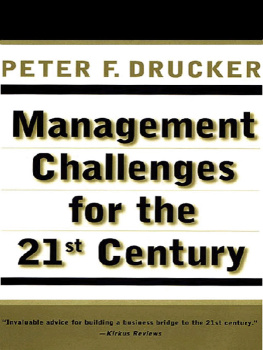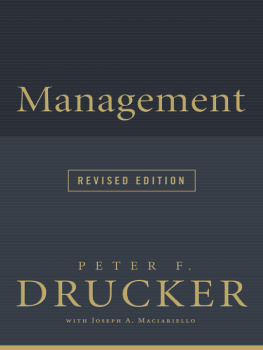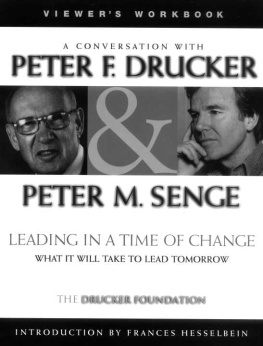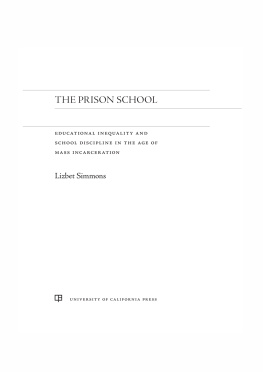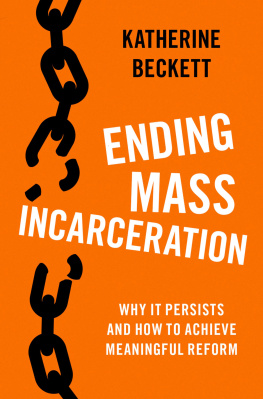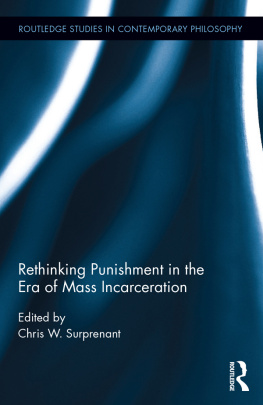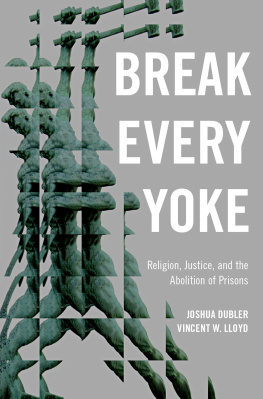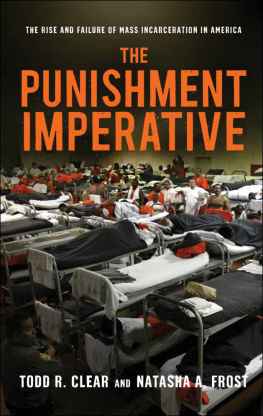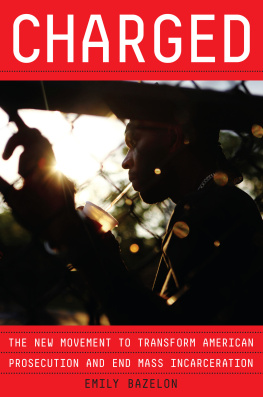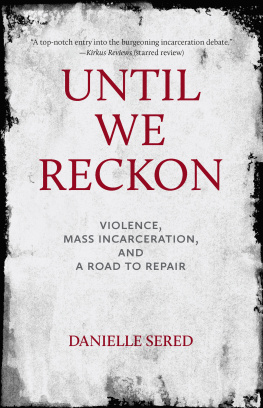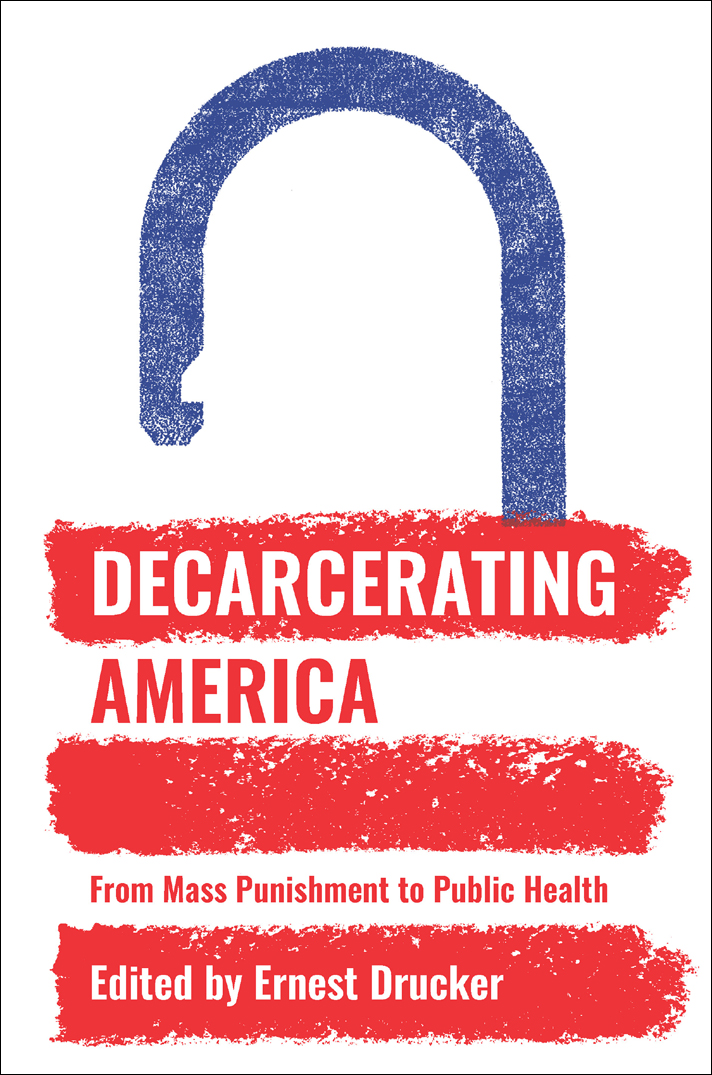
ALSO BY ERNEST DRUCKER
A Plague of Prisons: The Epidemiology of Mass Incarceration in America

2018 by The New Press
Chapters individual contributors
All rights reserved.
No part of this book may be reproduced, in any form, without written permission from the publisher.
Requests for permission to reproduce selections from this book should be mailed to: Permissions Department, The New Press, 120 Wall Street, 31st floor,
New York, NY 10005.
Published in the United States by The New Press, New York, 2018 Distributed by Two Rivers Distribution
ISBN 978-1-62097-279-3 (e-book)
LIBRARY OF CONGRESS CATALOGING-IN-PUBLICATION DATA
Names: Drucker, Ernest M., 1940
Title: Decarcerating America: from mass punishment to public health / edited by Ernest Drucker.
Description: New York: The New Press, [2018]
Identifiers: LCCN 2017042771
Subjects: LCSH: ImprisonmentUnited States. | PrisonsLaw and legislationUnited States. | Criminal justice, Administration ofUnited States. | PunishmentUnited States. | Correctional lawUnited States. | Law reformUnited States. | ImprisonmentSocial aspectsUnited States.
Classification: LCC KF9730 .D43 2018 | DDC 364.60973dc23 LC record available at https://lccn.loc.gov/2017042771
The New Press publishes books that promote and enrich public discussion and understanding of the issues vital to our democracy and to a more equitable world. These books are made possible by the enthusiasm of our readers; the support of a committed group of donors, large and small; the collaboration of our many partners in the independent media and the not-for-profit sector; booksellers, who often hand-sell New Press books; librarians; and above all by our authors.
www.thenewpress.com
Composition by Westchester Publishing Services
This book was set in Fairfield
2 4 6 8 10 9 7 5 3 1
Contents
Table of Contents
Guide
Decarcerating America
It used to be that most people saw drugs and crime as social diseases, and prison as the cure. But in the last few years a major shift in thinking has allowed us to understand that prisons themselves are the disease, having now taken on the epidemic proportions known as mass incarceration. Mass incarceration is destroying hundreds of communities and millions of families across America as we lose the health and well-being of vast swaths of our society.
This was the case I made in my book A Plague of Prisonsthat mass incarceration is a deadly and tenacious epidemic that damages the lives of individuals, families, and communities. Its a new kind of epidemic that results in a long list of chronic disabilities across the population of seventy million Americans with criminal records. The epidemic is particularly acute among the poorest minority communities, where the immediate public health effects of mass incarceration now include reduced life expectancy, higher infant mortality, and elevated rates of acute and chronic illnesses among those who have been in prison or had a family member incarcerated. The epidemic has also ravaged the vast majority of prisoners released and returned to their communities, many with deep wounds and new traumas from prison life and from being isolated through long separations from families and social supports. And yet, in order to end mass incarceration, we must greatly increase the number of people being released from prisons, exacerbating the public health problem of prisoner reentry.
The broad case against mass incarceration has been made in many other books and articles, and in the streets of Ferguson, Baltimore, and other cities where activists are striving to make black lives matter. The case has been made on the floors of legislative halls, in courtrooms, in classrooms, in state budgets. There is now a broad and growing base of support for ending mass imprisonment in America. Indeed, the emerging consensus that we simply cannot lock up so many people in prisons and jails stands to be one of the greatest victories for justice in America in our lifetimes.
To be sure, the 2016 presidential campaign brought a resurgence of law and order rhetoric and calls for harsher punishment. But at the same time (and, in some cases, even in the same place), a growing momentum has emerged to end this nations globally unique overreliance on incarceration. In 2016 alone, major strides in criminal justice reform were made, including victories such as Proposition 57 in California and State Questions 780 and 781 in Oklahoma, which stand to reduce both states prison populations dramatically. Voters elected progressive candidates as local prosecutors and sheriffs in places including Illinois, Florida, Texas, and Arizonaoutcomes that would have been unthinkable even five years ago. Although federal policy is influential in setting both law and tone, criminal justice remains largely a state-based and local issueand often a bipartisan one. So there remains reason to be hopeful, regardless of the spectacle of presidential politics.
Now it is time to ask, What is next? Specifically, to ask, Weve built a giant bureaucratic system that incarcerates two million people at a timehow do we get those people out of prison, stop more people from entering prison, and dismantle this system, all without doing further harm? This is the project of decarceration and the subject of this book.
Decarceration will be a complex undertaking that demands more than one approach. The primary objective of this book will be to present one of the first comprehensive sets of solutions to this problem. Since the problem is so complex, and since there are many solutions that must be made to work in concert, the best way to begin is to draw on the specific expertise of people who have spent their lives understanding a discrete part of mass incarceration and enacting innovative and experimental solutions to dismantle it. No one person has all the answers, but each contributor to this book has a solution to offer.
The overall goal is to reduce the size of our nations prison system. The standard for evaluating our success or failure must be whether we have deconstructed mass incarceration and replaced it with a less punitive, health-based system. Rather than treating criminal justice and prison data merely as the sum of deviant criminal behaviors by individuals, the contributors to this book use public health and restorative justice approaches that will allow us to set targets for reducing the number of arrests, reducing the use of long-term incarceration, and replacing the current punitive prison system with a set of proven alternatives that have a positive impact on both public safety and the people who are driven to crime. In order to dismantle the current regime of mass incarceration and help people currently held in prison, we present strategies to turn off the spigot of new commitments to prison and jail; embrace a restorative, transformative, dignity-based approach to incarceration for those we feel compelled to lock up; advocate for early release and support for successful integration back into home communities; and adopt a truth and reconciliation approach to undoing the trauma inflicted on millions of Americans during this virulently punitive era in American history.
The discipline of public health has a well-developed model of prevention that breaks interventions into primary, secondary, and tertiary strategies, each designed to address an epidemic at a different stage. I have drawn on these concepts and organized this book in three parts that mirror these three categories. We fight epidemics of infectious diseases in these three ways: by preventing people from getting sick (primary), by improving care for people once they are sick (secondary), and by healing communities and individuals who are recovering from the disease and by preventing further infections (tertiary).


